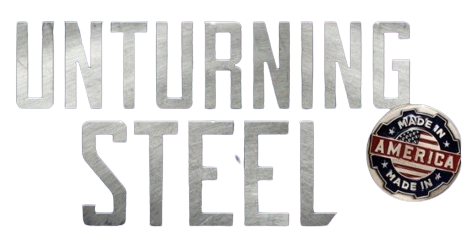Nick Lambson didn’t set out to be inspirational. He simply wanted to do his job well, serve his country, and come home to be the best husband and father he could. But in the process of navigating one of the most demanding roles in the U.S. military and later, one of the most daunting shifts into civilian life, he carved a path that speaks to veterans and civilians alike: a path marked by humility, resilience, and the courage to begin again.
Serving in the Shadows: Life as a Combat Controller
Nick served as a Combat Controller (CCT) in the U.S. Air Force – a highly specialized role within the Special Tactics community. Few outside military circles understand the full scope of this job. Combat
Controllers are embedded with other special operations forces and are trained to operate under extreme
pressure, often behind enemy lines, coordinating air support, directing airstrikes, and securing remote
airfields.
Stationed at Cannon Air Force Base in New Mexico, Nick operated in a high-stakes environment with a
small unit and each member carrying immense responsibility. The work required constant focus and total
commitment. From jumping out of planes to coordinating life-or-death decisions in the field, the role
demanded a level of physical and mental endurance that few careers ever require.
But within that intensity, a deeper lesson emerged. The culture of Special Tactics doesn’t just teach
tactical precision it instills a mindset: You earn your spot every day. No matter your past achievements,
every new day is a test of your readiness, attitude, and commitment to your team.
Family, Future, and the Fear of What’s Next
After six years of service, Nick faced a deeply personal shift. He had recently married, and his wife was expecting their first child. The birth of his daughter reframed everything. The adrenaline of operations and the structure of military life had once offered meaning but now, they clashed with his growing desire to be
present for his family
This was not an easy decision. For many service members, the military isn’t just a job, it’s an identity, a
lifestyle, a brotherhood. Leaving it behind often means facing emotional uncertainty. It’s not just a loss of
structure; it’s a loss of belonging.
For Nick, that uncertainty came in waves. What would civilian life look like? Would he be able to support his family? Would he still feel purpose without the uniform?
Many veterans experience this liminal space a kind of identity vacuum between the life they knew and the
life they’re trying to build. Nick describes this phase not with drama, but with striking clarity: “I knew I had the skills. But I didn’t know what came next. That part was scary.”
The Transition: From Combat Boots to Civilian Ground
Nick started early. While still deployed overseas, he began actively searching for job opportunities back home in Tennessee. Every day, he combed through job postings, looking for something that felt real, not just a paycheck, but something that echoed the purpose-driven ethos he was used to.
Then he found Unturning Steel.
The job description spoke directly to him. It wasn’t flashy, but it promised hands-on work, technical
growth, and a chance to be part of something mission-driven. After applying, he quickly got a response.His first conversation with the founder wasn’t a formal interview it was a genuine, open conversation. And that’s what hooked him.
Rather than a rigid hiring process, Nick found a community that saw his potential, understood his background, and focused on building trust. For someone used to tight-knit teams and mutual accountability, it was the perfect fit.
Building a New Life in Knoxville
Today, Nick lives in Knoxville, Tennessee with his wife and daughter. The difference in his daily life is stark but in the best way. Instead of early-morning calls or preparing for weeks-long deployments, he gets to make breakfast with his family. He’s there for birthdays, holidays, and the small, quiet moments that make up a full life.
Professionally, Nick is thriving. At Unturning Steel, he’s able to apply his problem-solving skills, precision, and leadership in a meaningful way. But more than that, he’s rediscovered the feeling of being on a team not because he’s forced to, but because he wants to contribute. His work now challenges him intellectually, pushes him to grow, and most importantly lets him stay grounded in what matters most.
He’s also connected to a broader mission: helping other veterans find their way, just as he did. Whether it’s by sharing his story, mentoring new hires, or simply showing up with integrity each day, Nick continues to serve just in a different uniform.
What Veterans Need to Know: Nick’s Hard-Won Lessons
Having walked the path from active duty to civilian success, Nick offers grounded advice for those preparing for their own transitions:
-
- Don’t wait to plan. Start six to twelve months before your separation. Learn about your benefits,
tap into tuition assistance, and explore career options early.
- Don’t wait to plan. Start six to twelve months before your separation. Learn about your benefits,
-
- Get real about finances. Know what your family needs, research what jobs pay in your area, and
build a budget before you get out
- Get real about finances. Know what your family needs, research what jobs pay in your area, and
-
- Use your tools. The military gives you access to education and certification programs, take
advantage of them. Whether it’s learning a trade or getting certified in project management, build
value before you transition.
- Use your tools. The military gives you access to education and certification programs, take
-
- Find your community. Whether it’s a company like Unturning Steel or a local veteran network,
surround yourself with people who get it and who will push you to keep growing.
- Find your community. Whether it’s a company like Unturning Steel or a local veteran network,
-
- Be open to change. You won’t replicate the military. And that’s okay. Focus instead on
integrating the best parts of your past into your future. Leadership, grit, problem-solving they’re
all transferable. Just be patient with the process.
- Be open to change. You won’t replicate the military. And that’s okay. Focus instead on
Redefining Success, On His Own Terms
Today, Nick doesn’t measure success by rank or ribbons. He measures it by impact on his family, his work, and the people around him. He’s built a life where he can lead with purpose, contribute meaningfully, and come home every night knowing he’s doing what matters.
In his words, “There’s no perfect plan. But if you stay proactive and open, you’ll find your place. And you might just find something even better than you imagined.”
His story is a powerful reminder: transitions are hard but with the right mindset, they can also be the start of something extraordinary
Learn more about how Unturning Steel supports veterans in career transition:
unturningsteel.org

